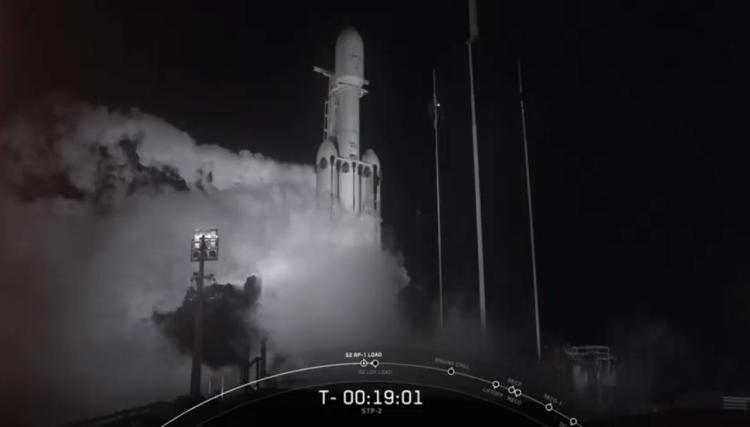SpaceX launches 60 more mini satellites for global internet

- Country:
- United States
SpaceX launched 60 mini-satellites Monday, the second batch of an orbiting network meant to provide global internet coverage. The Falcon rocket blasted into the morning sky, marking the unprecedented fourth flight of a booster for SpaceX. The compact flat-panel satellites — just 575 pounds (260 kilograms) each — will join 60 launched in May.
SpaceX founder and chief executive Elon Musk want to put thousands of these Starlink satellites in orbit, to offer high-speed internet service everywhere. He plans to start service next year in the northern US and Canada, with global coverage for populated areas after 24 launches. Last month, Musk used an orbiting Starlink satellite to send a tweet: "Whoa, it worked!!" Employees gathered at company bases on both coasts cheered when the first-stage booster landed on a floating platform in the Atlantic.
"These boosters are designed to be used 10 times. Let's turn it around for a fifth, guys," the company's launch commentator said. This also marked the first time SpaceX used a previously flown nose cone. The California-based company reuses rocket parts to cut costs.
Stacked flat inside the top of the rocket, the newest satellites were going to maneuver even higher following liftoff, using krypton-powered thrusters. SpaceX said there was a potential problem with one of the 60 that could prevent it from moving beyond its initial 174 mile-high (280 kilometer-high) orbit. In that case, the faulty satellite will be commanded to re-enter and burn up harmlessly in the atmosphere. Each satellite has an autonomous system for dodging space junk.
In September, however, the European Space Agency had to move one of its satellites out of the way of a Starlink satellite. SpaceX later said it corrected the problem. SpaceX is among several companies interested in providing broadband internet coverage worldwide, especially in areas where it costs too much or is unreliable. Others include OneWeb and Jeff Bezos' Amazon.
According to Musk, Starlink revenue can help SpaceX develop rockets and spacecraft for traveling to Mars, his overriding ambition.
(This story has not been edited by Devdiscourse staff and is auto-generated from a syndicated feed.)
- READ MORE ON:
- SpaceX
- Elon Musk
- Cape Canaveral
- Jeff Bezos
- Canada
- California
- European Space Agency
- Mars
- Amazon
ALSO READ
Cab Driver Charged with Assault in California
Canada and US Set to Revisit Trade Pact Amid Strategic Discussions
Tesla's License at Risk: California Regulators Crack Down on Self-Driving Claims
Tragic Fall: Star's Untimely Death Tied to California Drug Ring
Canada Expands Arctic Influence with New Consulates










